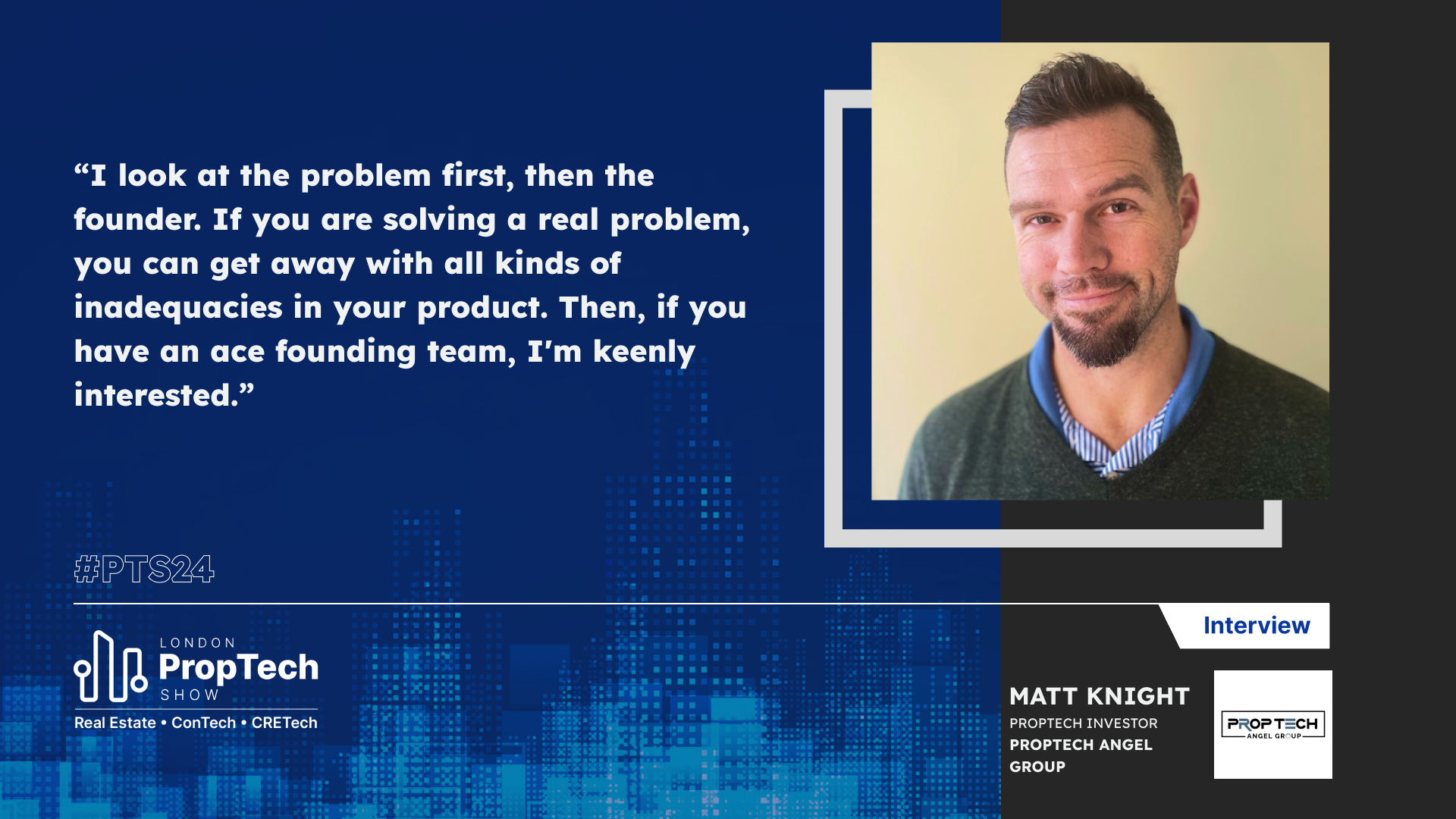In this exclusive Q&A session, we had the privilege of connecting with Matt Knight, a seasoned Proptech investor. With a decade of experience in the Proptech industry, Matt Knight provides invaluable insights into the rapidly evolving landscape of property technology.
In this Q&A Session, Mr Knight shares his perspective on recent trends poised to revolutionise the Proptech industry and outlines the key challenges faced by Proptech startups when seeking investment. He offers advice on how startups can make their pitches more appealing to potential investors and delves into the criteria he prioritises when evaluating Proptech ventures for investment. Additionally, he sheds light on the profitability of Proptech investments and provides a glimpse into the industry's projected trajectory over the next 5-10 years.
#PTS: Could you please offer a concise overview of your proptech industry experience? Additionally, we'd be keen to hear about the recent trends that you believe hold the potential to revolutionise the industry and bring about significant advancements. I've been in PropTech for about ten years?
Mr Knight: I've helped build a couple venture funds and currently run the largest angel group in the world. I'd say the most recent trend is just retrenching on problems. Tech is always evolving and changing. Seeing founders get back to customer discovery and problems that NEED solving is encouraging.
#PTS: For startups in the proptech space, what are the key challenges they face when seeking investment and what advice would you give to proptech startups to make their pitches more appealing to potential investors?
Mr Knight: Be concise. 7 times out of 10 I have to tell the founder a more concise way to state their problem and solution. That just means they need to practise the pitch and tighten up.
#PTS: When evaluating a proptech startup for potential investment, what are the key factors and criteria that you, as an investor, prioritise?
Mr Knight: I look at the problem first, then the founder. If you are solving a real problem, you can get away with all kinds of inadequacies in your product. Then, if you have an ace founding team, I'm keenly interested.
#PTS: From your perspective, how would you assess the level of profitability when it comes to investing in proptech startups? Are the potential returns compelling enough to attract significant interest from investors?
Mr Knight: If by profitability you mean for the startup, I look at gross and net margins. If you mean profit for my investors, then I need to see at least 20x return on my capital to justify seed stage risk.
#PTS: As we gaze into the future, could you share your insights on the projected trajectory of the proptech industry over the next 5-10 years? What transformative changes and developments do you anticipate shaping the landscape during this period?
Mr Knight: As I said above, I think just refocusing on problems in real estate is a great start. The valuation reset is only going to help with founder spending discipline. So I'd say the next 5 to 10 years are one of the best times to build a PropTech startup in recent history.
#PTS: In what ways do you believe events like the London PropTech Show can actively contribute to the growth and advancement of the proptech industry? How can such events serve as a catalyst for innovation, collaboration, and knowledge exchange among industry Stakeholders?
Mr Knight: I don't think it needs to be more complicated than bringing interested parties together. In my experience, events like this that get tech companies, real estate owners, and VCs in the same room create some great interactions and deals.

